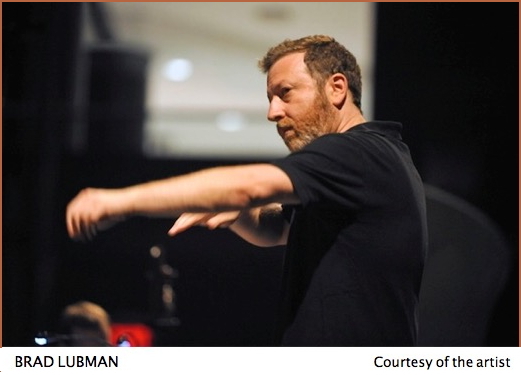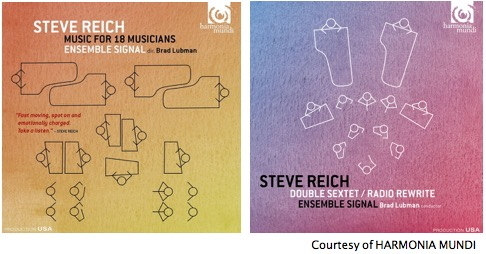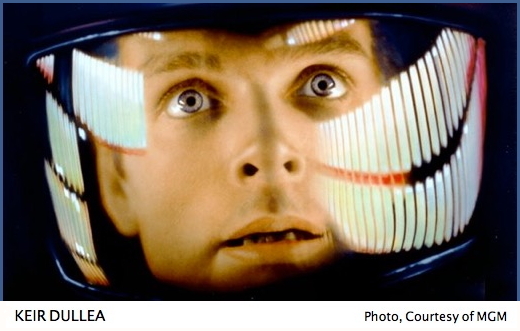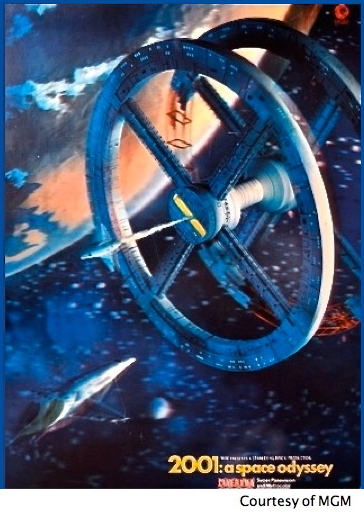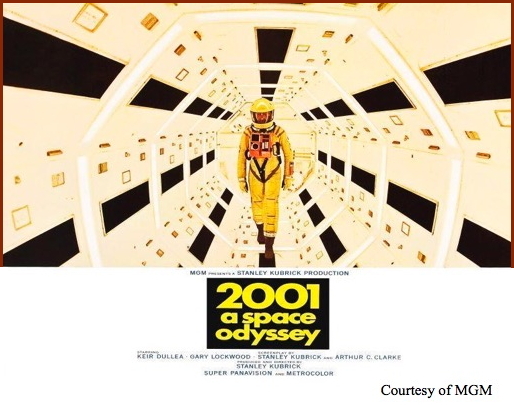Brad Lubman has the plummiest job in town this week - conducting the San Francisco Symphony Orchestra and Chorus in three screenings of Stanley Kubrick's 2001: A Space Odyssey. The program runs from Thursday to Saturday, 10/13-15 at 8pm, ticket holders are invited to attend pre-performance talks at 7pm with Kate McQuiston, author of We'll Meet Again: Musical Design in the Films of Stanley Kubrick. Actor Keir Dullea (astronaut David Bowman) will join her onstage Thursday night. This event marks Brad Lubman's debut conducting the entire SFSymphony and Chorus, having made a previous entrance in December 2001 as an auxiliary conductor for a work described as: spatial music. "It was the premiere of a piece called Ice Field by Henry Brant. I was engaged to conduct the brass players and percussion located in the balcony."
In addition to his appearances with the Dresden Philharmonic, Deutsches Symphonie-Orchester Berlin, Orchestre Philharmonique de Radio France, National Symphony Orchestra Taiwan and more - Brad Lubman is the founding co-Artistic director and Music Director of Ensemble Signal. The group has released two CDs of composer Steve Reich's work: Double Sextet / Radio Rewrite (2016) and Music For 18 Musicians which the NYTimes included on their list of Best Classical Music Recordings of 2015. Audiences at the recent Gala Opening of SFSymphony were treated to Reich's Three Movements. The composer was in attendance - a salute to his 80th birthday. Last summer Brad conducted a screening of 2001: A Space Odyssey at the Hollywood Bowl with the Los Angeles Philharmonic.
"2001 is a very important film for me," said Brad. "I was around six years old when I saw it with my parents at a theater in Long Island. They went because it was a new movie. I remember the general feeling in the air - all the talk about space travel and lunar landings. The film made a huge impact on me in terms of futuristic thinking. It's also true that - at a certain point - I lost my way through it because I was only six years old! But the impact was profound, as was the music. When 2001 was released on DVD, I bought it because the film makes a very important statement and the music choices are fantastic."
Director Stanley Kubrick trashed an original score created by Alex North (reconstructed and released in 2013 on the Dylanna Music label) and replaced it with a then unbelievable combination of classical and contemporary selections. It did not take long for the nay-sayers to reach the consensus that Kubrick had created a stunner, one for the books - a completely harmonious union of unrelated pre-existing classical works and visionary, deviceful narration. Forever intertwined. In addition to Richard Strauss' masterpiece of 1896, Thus Spake Zarathustra, of particular fascination were three works by György Ligeti - Atmospheres (1961), Lux Aeterna (1966), and Requiem (1963) - along with the most impetuous choice of all, The Blue Danube (1866) by Johann Strauss.
"All of it is great music, even just the opening two minutes of Richard Strauss' Also Sprach Zarathustra is some of the greatest music ever written. To hear it live is a phenomenal experience. Johann Strauss' Blue Danube is actually a gorgeous piece and I love it. Hearing it at that early age - not only at the movie, but my parents then bought the soundtrack LP. I remember my dad sometimes playing just that, but not the Ligeti. The Blue Danube has always been in my ears. It is a ravishing piece of music. I'm also a huge fan of contemporary music and Ligeti is one of my favorite composers. The excerpts taken from the Requiem and Atmospheres are among the best moments of those pieces. It is a really intense experience. As a six-year-old, hearing that music - especially because it starts with the men's voices and it's very chromatic - I would take the needle off the record a few seconds after the Requiem excerpt started because it was so scary. Then I would play a game with myself - figuring out how long I could listen to it. You get this sense of mystery or the sense of a force that is greater than all beings. It's incredible how Ligeti accomplished that."
"I believe many things experienced for the first time in a concert hall make for a very profound impact and in a very positive way. Nothing can ever replace the live concert experience. There is a set way that the film is projected in the hall so that everything is co-ordinated with it. Since we're not using a click-track, we can perform the music musically. The idea for 2001 is to have rough estimates so you can feel free to perform - within reason - as you would perform in concert. That is really great. Because the music is so fantastic, you can perform the music without feeling that you are constricted. The people who created the system went through and carefully set time codes. Going through the score you'll see the minutes and seconds - sometimes every other measure or every four measures. I watch the film on a small screen - a time track is running throughout. As I'm conducting I'm also looking at the score. Sometimes there is a description - 'Astronaut closes door' - then you look at the score and see that it should happen at 39:03. But it doesn't have to be spot-on. You have this flexibility where you know you're approaching that area and are in the right place. It's a very comfortable and relaxed way of doing it."
"When I was about five years old I saw the Beatles on TV and basically just wanted to be them - any of them, all of them. I started taking drum set lessons when I was seven. From that point on I wanted to be a rock drummer, a jazz drummer. When I was fourteen, a trumpet player friend of mine - who had gone to a summer music camp - wanted me to listen to Mahler's First Symphony. I already knew a few things of Beethoven, Bach, Prokofiev - but, 'who is Mahler?' He put the LP on - I was blown away. I kept saying, 'You can do this sort of thing in classical music?' Almost right then and there I decided I had to devote my life to classical music. That meant being an orchestral timpanist and percussionist. Soon after that, I was also obsessed with being a classical conductor. In high school I spent a lot of time buying classical scores and recordings, going to concerts, and just learning tons of repertoire. First the Beatles, then Mahler. That's what did it!"
